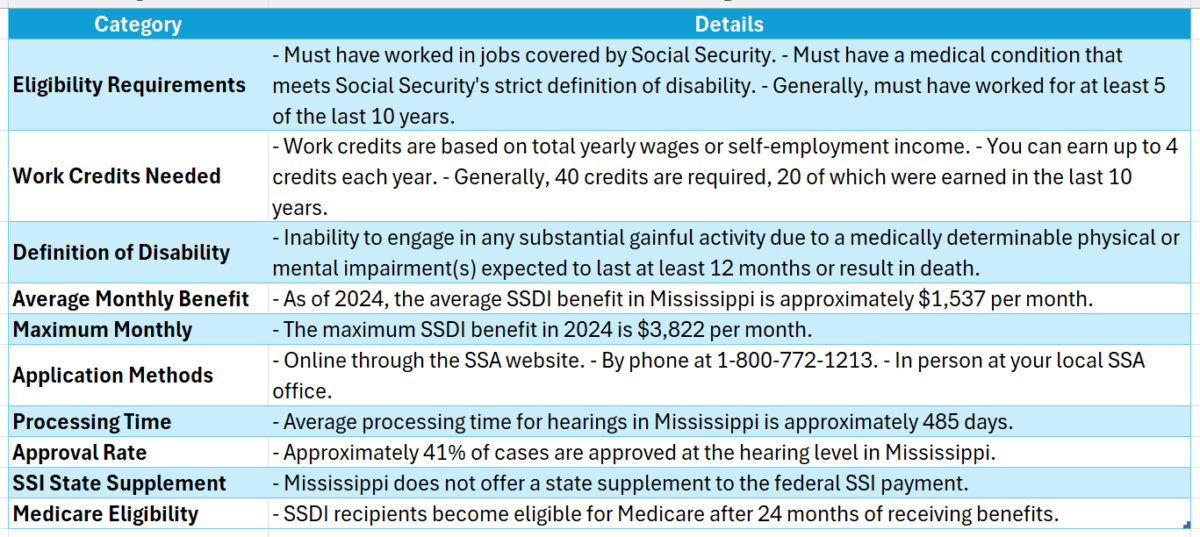How to Qualify for SSDI MS with Multiple Sclerosis (MS)?
Looking for trusted legal experts to handle your case? Whether it’s a complex claim or a personal issue, FreeLegalCaseReview offers free consultations and expert advice tailored to your needs. Or call us directly at 833-248-4565.
If you have multiple sclerosis (MS) and are unable to work, you may qualify for Social Security Disability Insurance (SSDI). This program provides financial help to people with severe medical conditions. In this guide, we will explain everything you need to know about SSDI MS, including eligibility, application steps, and tips for approval.
What Is SSDI MS?
SSDI MS refers to Social Security Disability Insurance for people with multiple sclerosis. MS is a chronic illness that affects the nervous system, leading to symptoms like fatigue, muscle weakness, and difficulty walking. If MS prevents you from working, you may be eligible for SSDI benefits.
-
SSDI Basics: SSDI is a federal program that pays monthly benefits to disabled workers who have paid into the Social Security system through payroll taxes.
-
MS and Disability: Because MS can cause severe physical and cognitive problems, many people with this condition qualify for disability benefits.
-
Medical Requirements: The Social Security Administration (SSA) has strict rules about which medical conditions qualify. MS is listed in the SSA’s Blue Book under Section 11.09.
To qualify, your MS must significantly limit your ability to work for at least 12 months. The SSA will review your medical records, work history, and daily functioning before making a decision.

How to Qualify for SSDI with MS
Qualifying for SSDI with MS requires meeting specific medical and work-related criteria. Below are the key steps to determine eligibility.
-
Meet the Medical Listing
The SSA’s Blue Book includes a listing for MS (Section 11.09). To qualify, your medical records must show:-
Significant difficulty with movement (such as walking or using your hands).
-
Severe vision problems.
-
Cognitive issues like memory loss or trouble concentrating.
If your symptoms match the listing, you may be approved quickly. If not, you can still qualify by proving your MS prevents you from working.
-
-
Have Enough Work Credits
SSDI is for people who have worked and paid Social Security taxes. The number of work credits you need depends on your age. Generally, you need 40 credits, with 20 earned in the last 10 years. -
Prove You Can’t Work
Even if your MS doesn’t exactly match the Blue Book, you may still qualify if your symptoms make it impossible to hold a job. The SSA will assess your residual functional capacity (RFC), which measures what tasks you can still do.
How to Apply for SSDI with MS
Applying for SSDI can be a long process, but being prepared can help. Follow these steps to submit a strong application.
-
Gather Medical Records
Your doctor’s reports, MRI results, and treatment history are crucial. Make sure your records detail how MS affects your daily life and ability to work. -
Complete the Application
You can apply online, by phone, or in person at a Social Security office. Be ready to provide personal information, work history, and medical details. -
Submit Additional Evidence
Include statements from employers, coworkers, or family members who can describe how MS limits your activities. -
Follow Up
After applying, check your status online or by calling the SSA. If more information is needed, respond quickly to avoid delays.
Common Reasons for SSDI Denials and How to Appeal
Many SSDI MS claims are denied at first. Here’s why and what you can do if it happens to you.
-
Insufficient Medical Evidence
If your records don’t clearly show how MS disables you, the SSA may deny your claim. To fix this, get detailed notes from your neurologist and other specialists. -
Missing Work Credits
If you haven’t worked enough, you may not qualify for SSDI. In this case, you might consider Supplemental Security Income (SSI), which is based on financial need. -
Errors in the Application
Mistakes like incomplete forms or missing signatures can lead to denial. Double-check everything before submitting.
If denied, you can appeal. The process has four levels:
-
Reconsideration
-
Hearing with an administrative law judge
-
Appeals Council review
-
Federal court lawsuit
Most people win at the hearing stage, especially with a lawyer’s help.
What Conditions Automatically Qualify You for Disability?
The SSA has a list of conditions that may qualify for fast approval. These include:
-
Multiple Sclerosis (MS) – If it severely limits movement or cognitive function.
-
Cancer – Certain advanced or aggressive types.
-
HIV/AIDS – With specific complications.
-
Organ Failure – Such as heart, liver, or kidney failure.
Even if your condition is on the list, you must still provide strong medical proof.
Ready to connect with top legal professionals? Get immediate support— Call us at 833-248-4565.
SSI Oregon: Financial Help for Disabled Residents
If you live in Oregon and don’t qualify for SSDI, you may be eligible for SSI (Supplemental Security Income). SSI helps low-income individuals with disabilities.
-
Eligibility Requirements:
-
Have a disabling condition (like MS).
-
Meet strict income and asset limits.
-
-
How to Apply:
-
Apply online or at a local Social Security office.
-
Provide proof of income, resources, and medical condition.
-
Oregon also offers state supplements to SSI, providing extra financial help.
Read Also: What Conditions Automatically Qualify You for Disability?
Tips for Winning Your SSDI MS Claim
To improve your chances of approval, follow these tips:
-
See Your Doctor Regularly
Consistent treatment shows the SSA that your MS is serious. -
Keep a Symptom Journal
Write down daily struggles with walking, fatigue, or memory. This helps prove your case. -
Get Legal Help
A disability lawyer can guide you through the process and represent you in appeals.
Final Thoughts
Applying for SSDI with MS can be challenging, but understanding the process improves your chances. Gather strong medical evidence, meet work requirements, and consider legal help if denied. If SSDI isn’t an option, check SSI Oregon for alternative support.
By taking the right steps, you can secure the benefits you need to manage life with MS
Don’t wait to secure the legal representation you deserve. Visit FreeLegalCaseReview today for free quotes and tailored guidance, or call 833-248-4565 for immediate assistance.
You can also visit LegalCaseReview to find the best Lawyer.
FAQs
1. What is SSDI and who qualifies for it in Mississippi?
SSDI is a federal program that provides monthly benefits to people who are disabled and have worked long enough to pay Social Security taxes. To qualify in Mississippi, you must meet the Social Security Administration’s (SSA) definition of disability and have earned enough work credits.
2. How do I apply for SSDI in Mississippi?
You can apply for SSDI online at ssa.gov, by phone at 1-800-772-1213, or in person at a local Social Security office in Mississippi.
3. How long does it take to get a decision on an SSDI claim in Mississippi?
Initial decisions can take 3 to 6 months. If your claim is denied and you appeal, the process can take much longer, especially if it reaches the hearing level.
4. What types of conditions qualify for SSDI in MS?
Any medical condition that prevents you from working for at least 12 months or is expected to result in death may qualify. This includes physical conditions (like cancer, heart disease, or back injuries) and mental health conditions (like depression or PTSD).
5. How much money will I get from SSDI in Mississippi?
SSDI payments are based on your lifetime earnings. In 2025, the average monthly benefit is around $1,500, but your amount may be higher or lower depending on your work history.
6. Can I work while receiving SSDI benefits in MS?
Yes, but there are income limits. In 2025, if you earn more than $1,550 per month (or $2,590 if blind), it may affect your eligibility. The SSA offers a Trial Work Period (TWP) to test your ability to work without losing benefits right away.




